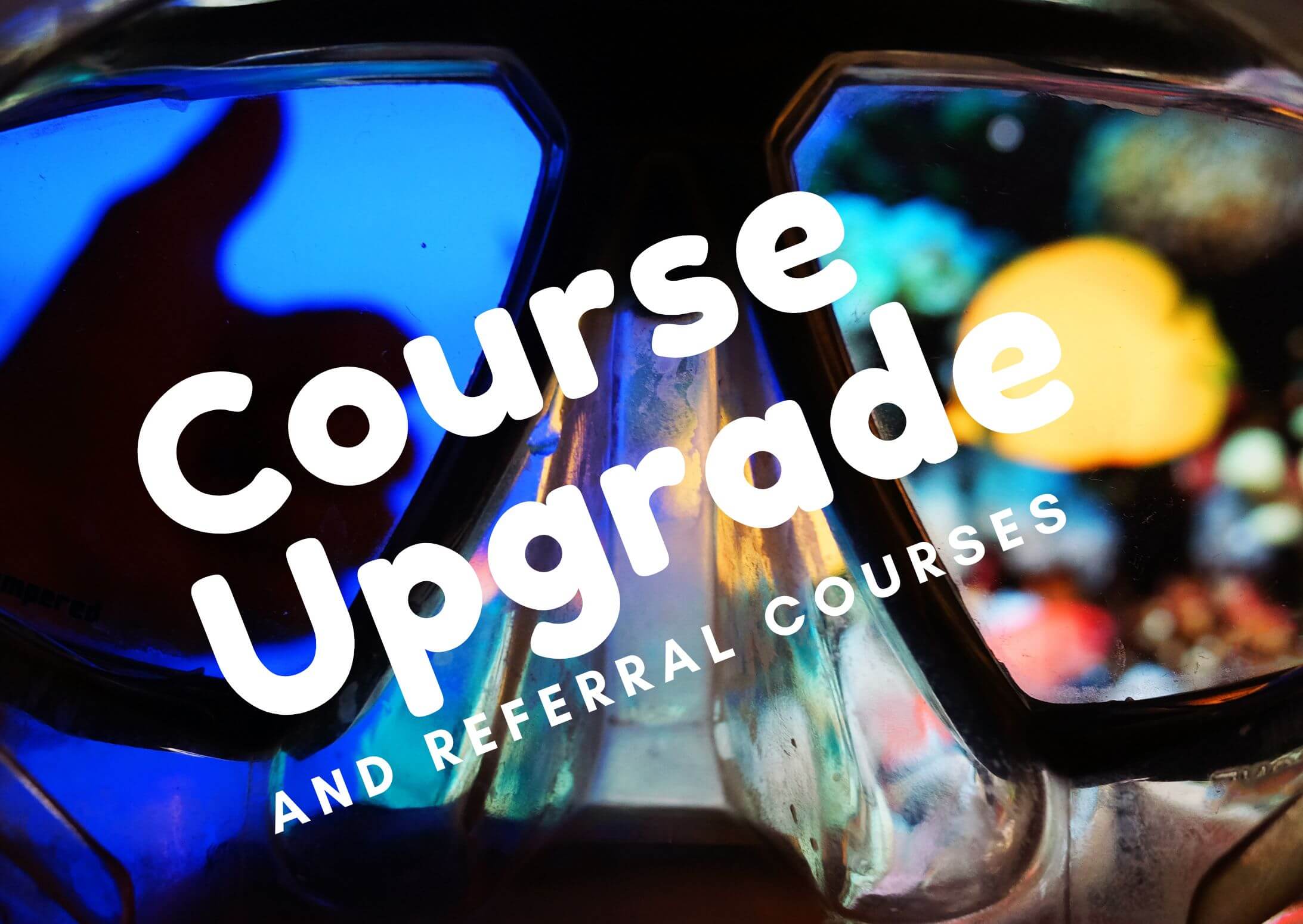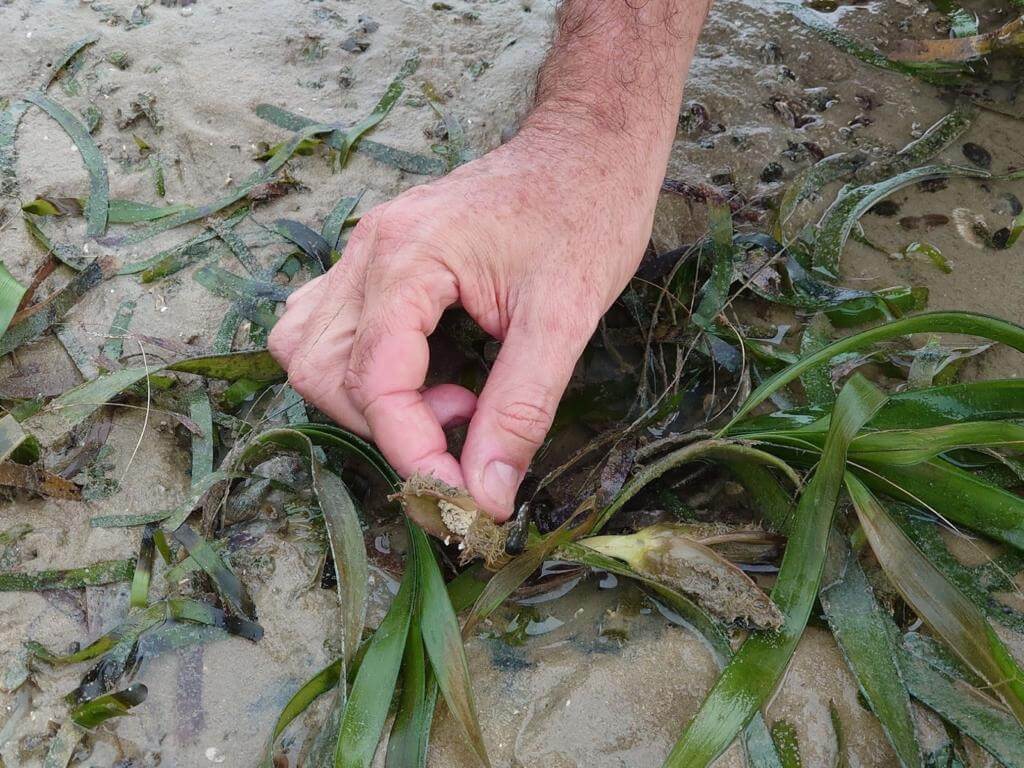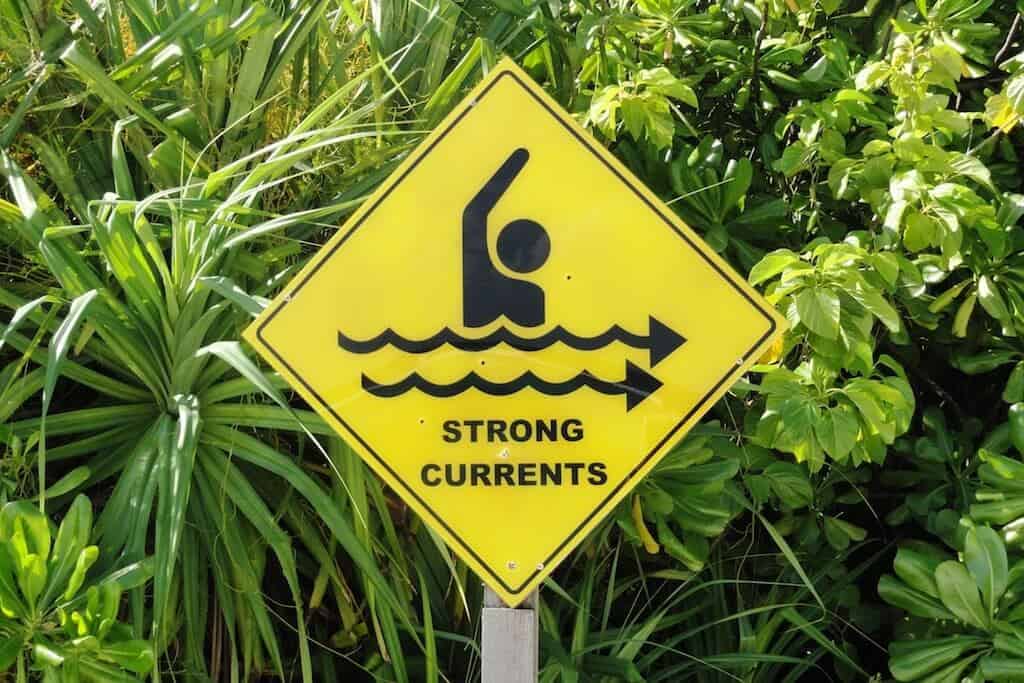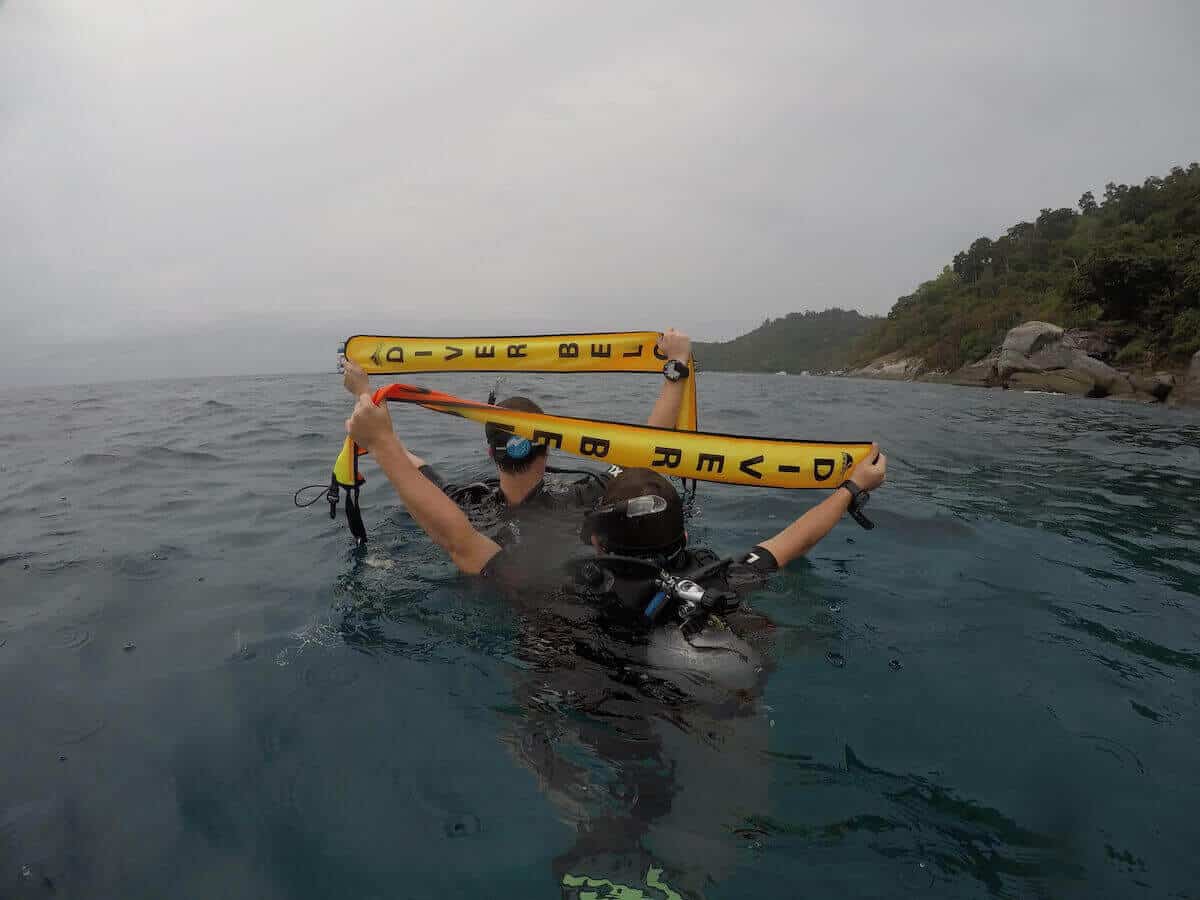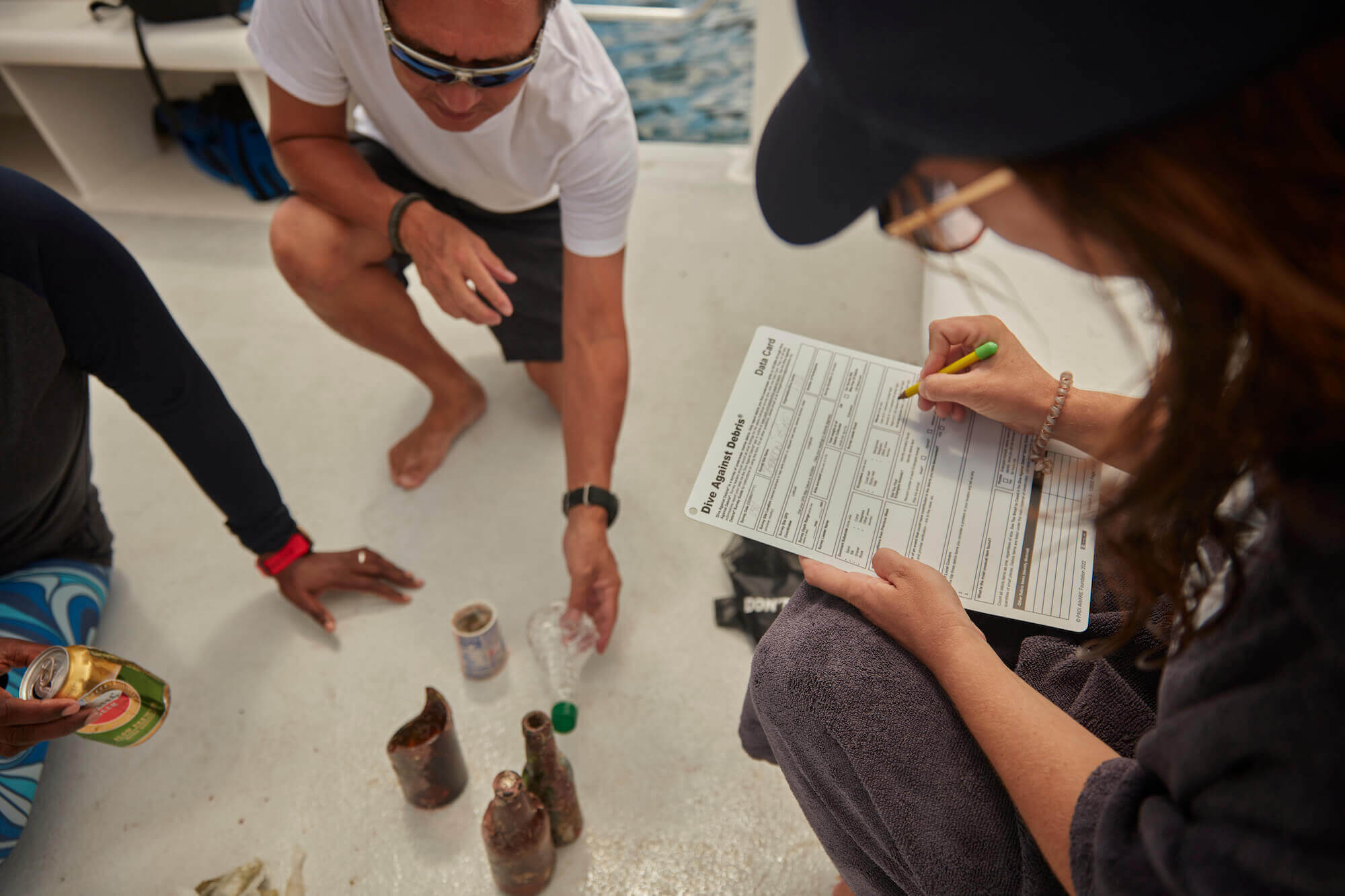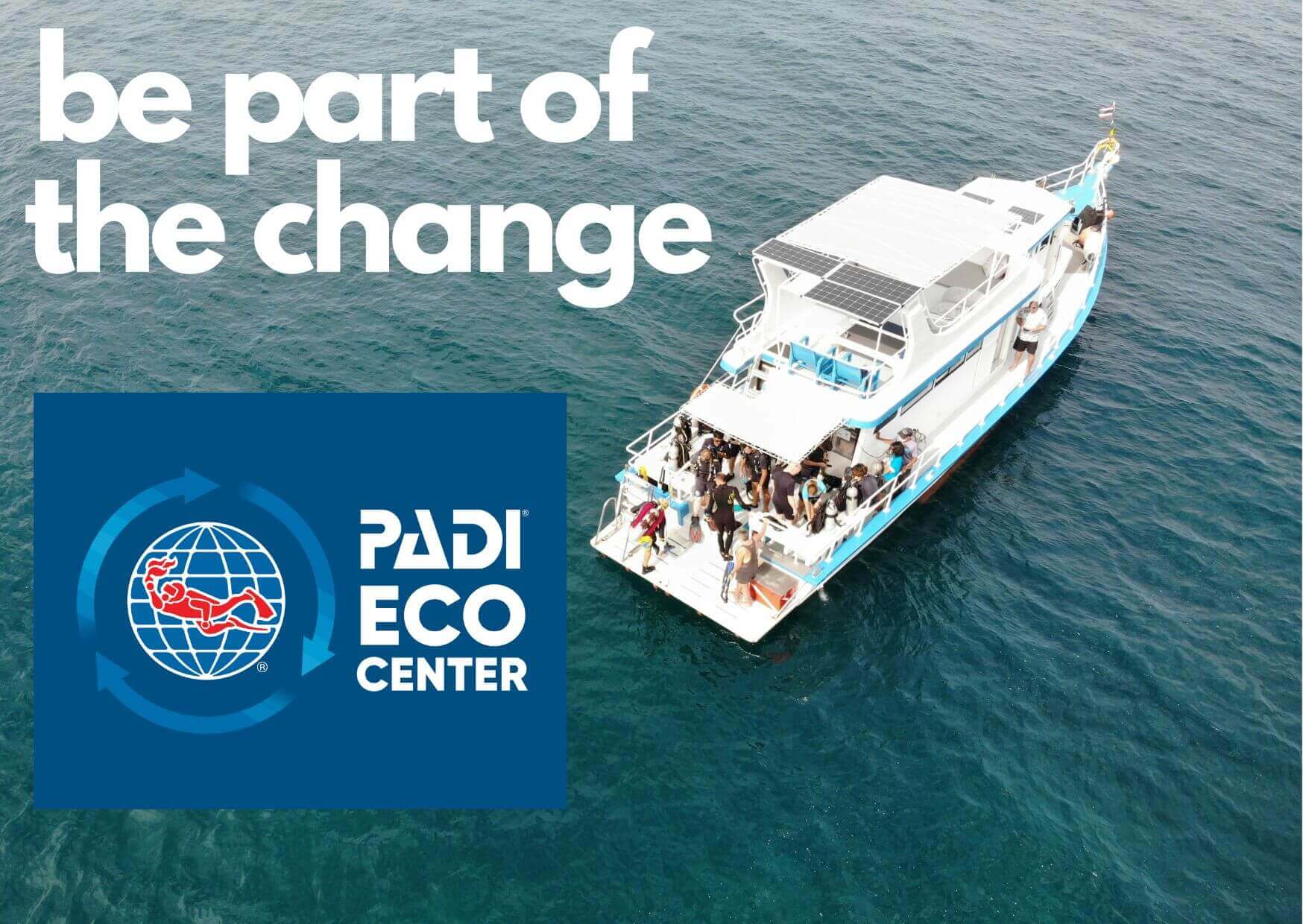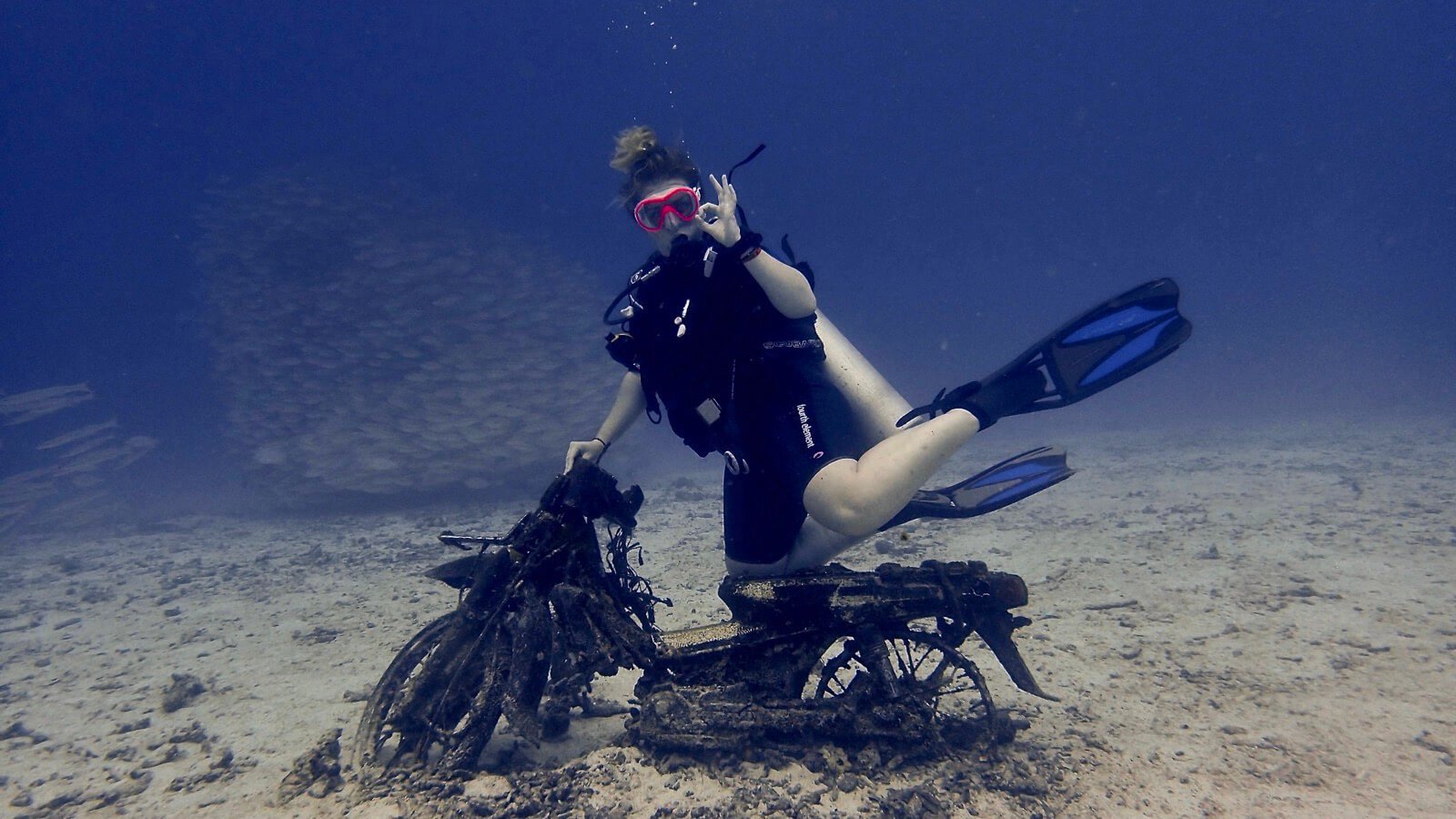Which dive course should I choose ?
Let’s have a look at which dive courses are available to you. Your dive education can be divided into three stages:
Open Water Diver – You learn how to successfully survive underwater.
Advanced Open Water Diver & Specialty Courses – Explore new diving conditions safely with an experienced scuba instructor together
Rescue Diver – You get a better diver with the ability to prevent the unfortunate
With that said, let’s dive a bit deeper into the course structure.
Your beginner dive course choice
The Open Water Diver Course is the most popular entry-level dive course where most people get hooked on the recreational diving sport. However, there are 2 other options to infect you with the diving virus. If you want to find out if scuba diving is for you then Discover Scuba Diving is the right thing. A one-day program without academics to study nor a big financial commitment. The Scuba Diver is a step between trying out diving and the Open Water Diver certification.
The advanced level dive course
Now it can get a bit confusing. The most diver who completed the Open Water Diver move on to the Advanced Open Water Diver certificate. This dive course contains 5 adventure dives on different topics. If you just want to complete three adventure dives you will earn the Adventure Diver certification, a subgroup of the Advanced Open Water Course. These dive courses are designed to get a glimpse of a full speciality course. Every adventure dive has the same dive objective as the first dive of the corresponding speciality course. In the speciality, you focus on a special diving environment like ocean current or special skill to improve like your buoyancy. In the end, it is all about the diving experience. When you dive more you gain more experience. In a speciality course or advanced open water diver course, you are not automatically an experienced diver. But it gives you the tools to get there faster.
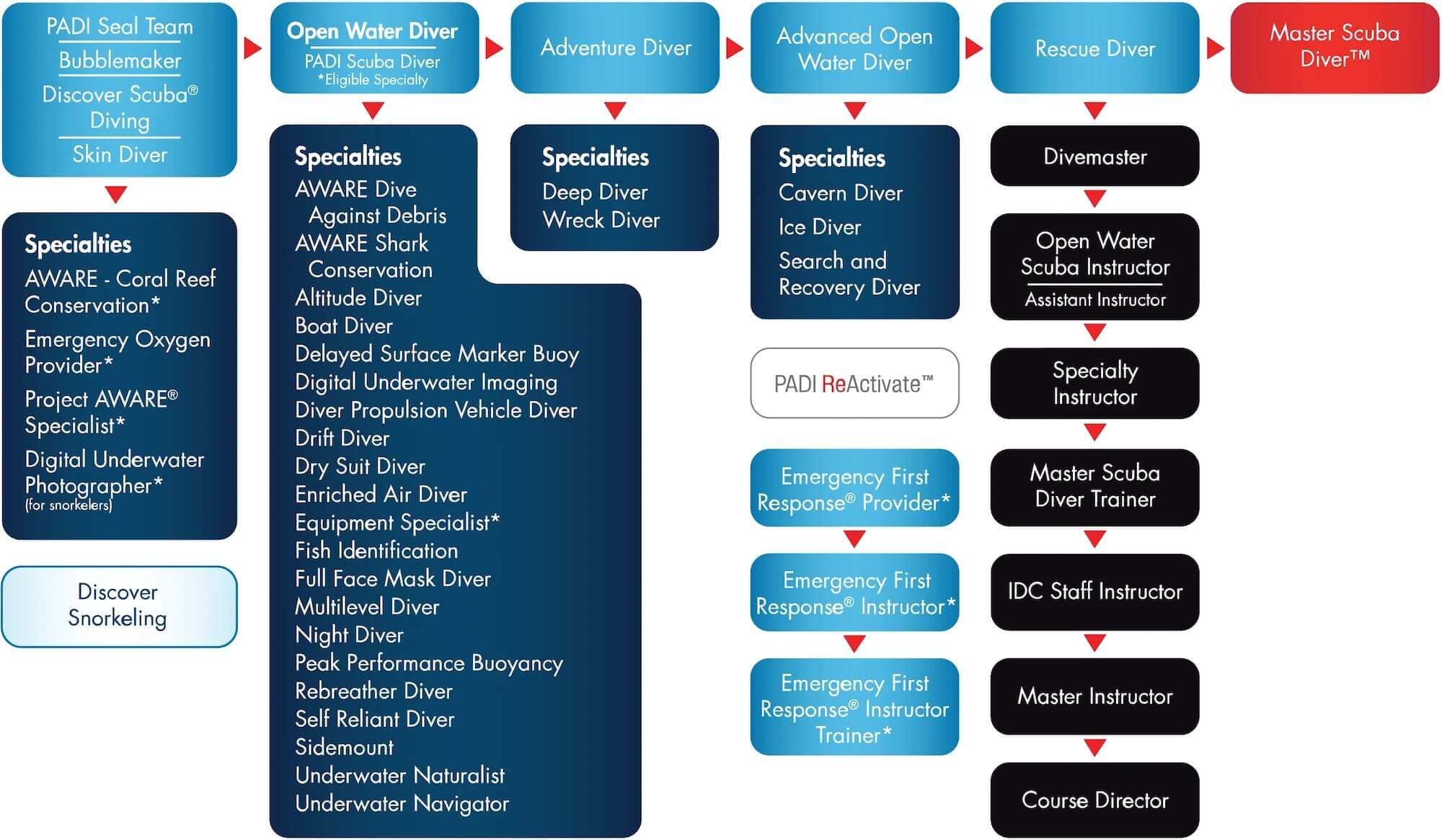
The rescue dive course
Unfortunately, most divers stop their education at the Advanced Open Water Diver level. Yes, you can dive to 30m depth and you might be a confident diver handling most diving situations with an ace. But are you prepared for the unfortunate? That’s why the Rescue Diver Level is the most important step in completing your diving education. I do not think that it is the right name for the course as we want to prevent rescues in the first place. Diving is all about prevention and of course hoping for the best and preparing for the worst. Most divers who did the Rescue course say it was the most rewarding course they did so far. With the Rescue Course completed you might be eligible to receive the Master Scuba Diver Certificate which recognises you as a safe and experienced scuba diver. This is the highest certificate you can hold as a recreational diver. If your hunger for knowledge isn’t satisfied yet, you can continue with the divemaster course.
What’s the next course you like to take with us?
